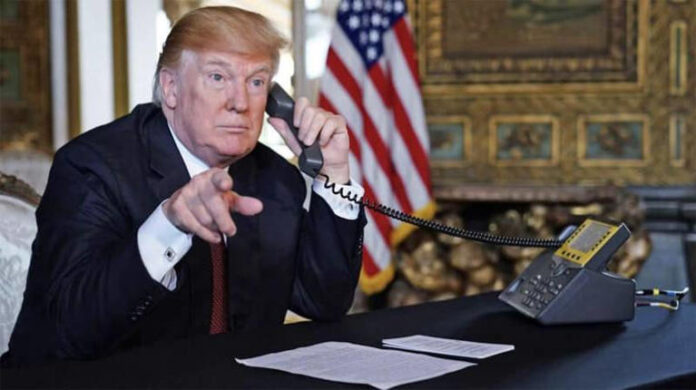In the realm of modern communication, the utilization of social media platforms has transcended personal interactions to become a pivotal tool for political figures. Former President Donald Trump’s unorthodox usage of Twitter has been a subject of immense intrigue and analysis. In this comprehensive article, we delve deep into the reasoning behind Trump’s preference for Twitter direct messages (DMs) over conventional text messages, shedding light on the legal implications that surround this choice.
The Twitter Paradox: Why Trump Opted for DMs over Texts
Donald Trump’s affinity for Twitter is indisputable, with his tweets often making headlines and triggering global conversations. However, his penchant for using direct messages on the platform raises intriguing questions. While conventional wisdom might suggest that text messages, which are considered more private, would be the preferred mode of communication for matters of political significance, Trump’s proclivity for DMs opens a window into his strategic communication approach.
In the complex landscape of social media, Twitter DMs offer a unique blend of informality and wide-reaching impact. By sending DMs, Trump could communicate directly with his audience while maintaining an air of personal connection. This method allowed him to disseminate unfiltered messages to his followers, bypassing traditional media gatekeepers. The allure of real-time engagement and instant feedback, coupled with the potential for messages to go viral, presents a compelling explanation for Trump’s preference.
Legal Ramifications: Navigating the Boundaries of Communication
Trump’s utilization of Twitter DMs, however, has not been without legal scrutiny. The distinction between personal and official communication in the context of a public figure like the President is a delicate one. The preservation of records for transparency, accountability, and potential legal proceedings becomes paramount.
The Paper Trail: Unearthing the Evidence
In the case of Trump’s use of Twitter DMs, the absence of a comprehensive paper trail poses challenges. Unlike conventional communication channels, Twitter DMs lack the formal archiving mechanisms typically associated with official government correspondence. This obscurity raises concerns about potential information gaps and the preservation of crucial records.
Legal experts have dissected the nuances of whether Trump’s DMs should be considered official statements or personal expressions. This ambiguity has prompted debates over the applicability of records retention laws, further muddying the waters of digital communication regulation.
The Comparative Advantage: DMs vs. Texts
To understand why Trump may have favored DMs over text messages, it’s essential to contrast the two modes of communication.
Twitter DMs, despite their informal nature, possess a distinct advantage in terms of reach and virality. A well-crafted DM has the potential to resonate across the platform, sparking discussions and amplifying the message’s impact. Additionally, the character limit imposed by Twitter encourages concise and impactful messaging—a skill Trump has mastered.
Conversely, text messages, while inherently more private, lack the same level of instantaneous dissemination. Texts are confined to the recipient’s immediate circle and lack the potential for virality that is characteristic of social media platforms.


